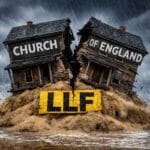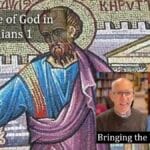Eschatology—the question of the ‘last days’ or ‘last things’—is a central theological theme in the New Testament. It frames Jesus’ proclamation of the kingdom of God in the gospels, and in the epistles provides the grounding of our understanding of both discipleship in the present and hope for the future. In previous generations, its importance has often been marginalised, and in contemporary scholarship and popular reading, many aspects of eschatology are highly contested.
The Tyndale New Testament Study Group is meeting to explore this from Monday 30th June to Wednesday 2nd July 2025 at The Hays Conference Centre in Derbyshire. It is close to the M1 and can be reached by train to Alfreton station.
It is an excellent site, with good accommodation and beautiful grounds, and within easy reach of the beautiful Peak District for walking. We will be meeting simultaneously with other groups, so there a chance to interact with members across the whole of the Tyndale Fellowship.
It promises to be a fascinating exploration, with an international cast of contributors—we hope you can join us! You can book online here, and there are discounted rates available until 7th February 2025.
The programme will include the following:
Discussion: Eschatology in the Thessalonian Letters
In this session we welcome Bruce Longenecker and Sydney Tooth to share their ongoing research in this area following their 20204 publications. Sydney’s monograph addresses the compatibility of the eschatology of 1 and 2 Thessalonians (Suddenness and Signs: The Eschatologies of 1 and 2 Thessalonians, Mohr Siebeck 2024) and Bruce’s articles reimagine the socio-historical context of the founding of the Thessalonian church (“The Rupture of an Association: Social Conflict and Its Management in the Thessalonian Christ Assembly.” Journal of Biblical Literature 2024; “The Wrath of the Deities and The Privileged Deceased: Narrating Death in the Associational Rupture at Thessalonica.” NTS 2024). We will have a chance to unpack, discuss and debate their work with them as part of our time together.
Other papers:
Aminta Arrington (John Brown University, Arkansas): The Last Shall Be First: Overturning Banquet Etiquette and Enacting Eschatological Reversal in Luke 14
Armin D. Baum (Freie Theologische Hochschule, Gießen, Germany): Where Do the Persistent Disagreements between German-speaking and English-speaking Biblical Scholarship Come from? A Sociological Answer Based on the History of Research on 2 Thessalonians
































